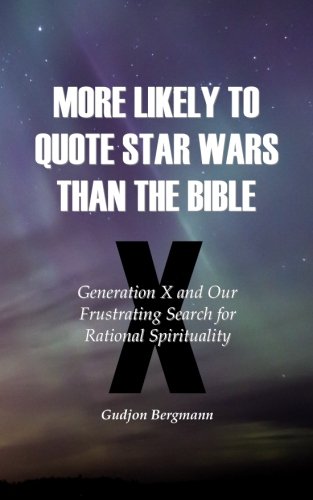
From the introduction: “We are Generation X, born between the mid-sixties and early eighties, raised in the shadow of the Cold War in industrialized Western nations. Underneath our consumer-friendly façade loomed a near-constant fear of nuclear annihilation. Images of disintegrating people and houses that turned instantly to ashes haunted our dreams. We were the first latchkey-kid generation. Our parents believed in free love, and for many of us, that meant broken homes. We are known to be anti-authoritarian, anti-institutional, and notoriously antireligious—more likely to quote Star Wars, Lord of the Rings, Monty Python, or Star Trek than the Bible. We are self-reliant, intellectual, discerning, and postmodern to a fault. Be this as it may, an increasing number of us find that something is missing . . . something vague . . . something—dare I say—spiritual. . .” In utter frustration, Generation X, more than any previous generation, has asked the question: “Isn’t there any way to be spiritual without denying rationality?” This book attempts to answer that question. As such, it is a must read for anyone from Generation X who has ever struggled with his or her spiritual identity. More than anything else, this book is an attempt to start an important cultural dialogue. You will want to discuss the ideas it has to offer, as they affect your life directly. The book begins with gusto, offering a sensible critique of current spiritual choices, everything from going to church to practicing twelve step spirituality to becoming spiritual-but-nonreligious, and then moves on to explore what it has meant for us to be the first postmodern generation. Finally, the book ends by demonstrating what a trans-rational approach to spirituality could look like. Written in unapologetic language by a self-described GenX poster child, and riddled with pop culture quotes, this book will spur you to think, and most certainly challenge your ideas about religion and spirituality. By the end, it will bring you closer to a personal approach that includes, but is not limited to, rationality.
